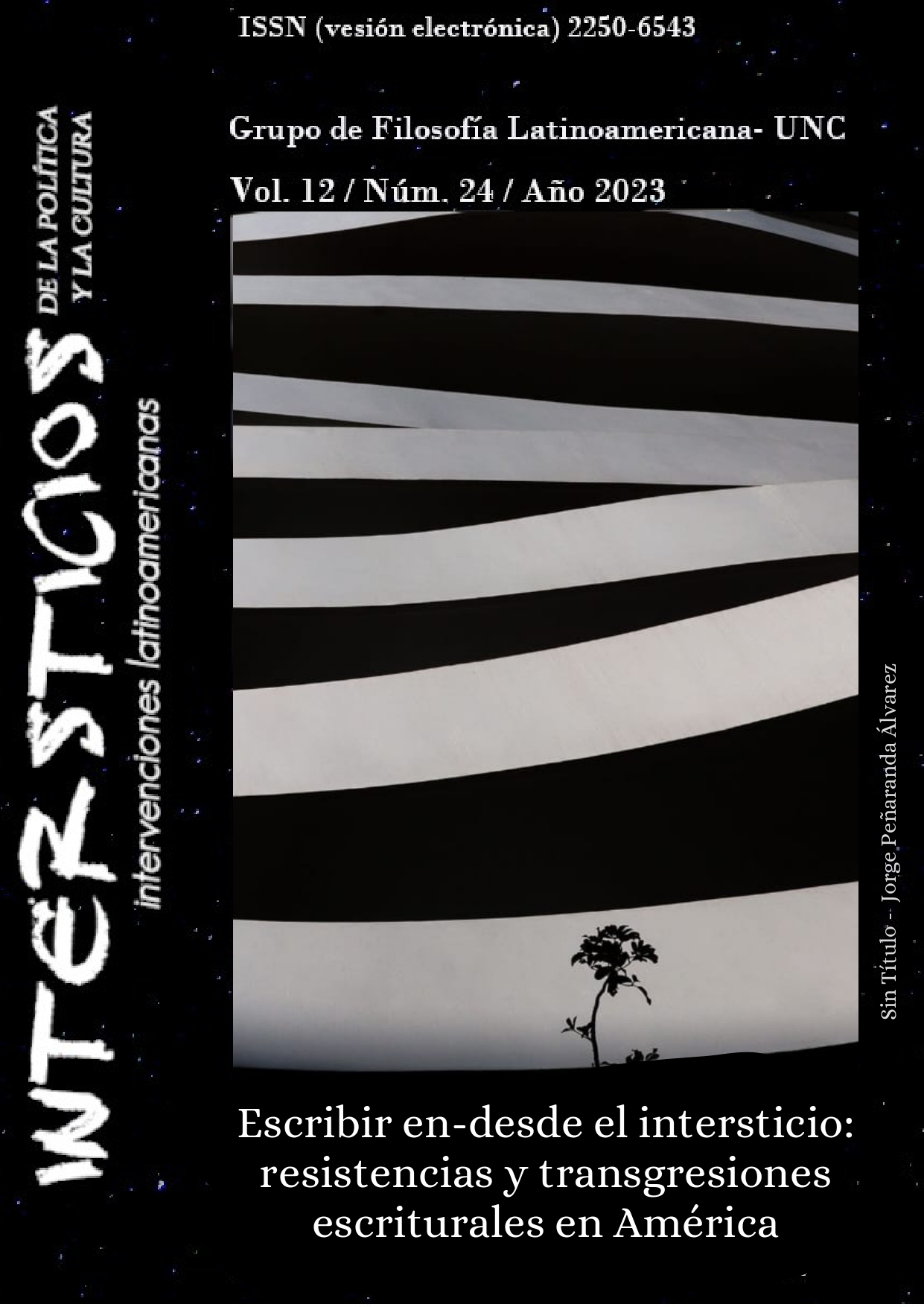Memory as the common thread of indigenous narratives
Keywords:
Brazilian indigenous narratives, memory, sequestration of indigenous literature, Brazilian literary system, educationAbstract
With the entrance of the indigenous people in the schools and their presence in other places of communication, their tales, their prayers, their chants and other narrative forms of their oral tradition began to be written by themselves. In relation to indigenous literary writing itself, their today’s stories are narratives of a cultural, historical and testimonial nature, with the struggles and social obstacles of the past and present, marked by the presence of collective memory. In view of the need to introduce the indigenous theme in Brazil and all the problems it involves, in this text we will bring to discussion aspects related to indigenous culture, history, education and literature in its relationship with the same aspects in its non-indigenous side. To achieve this first objective, we use the bibliographic method, using texts about education, writing and indigenous literature (Graúna and Guesse), anthropology (Baniwa and Ribeiro) and reading reception (Adichie and Iser), concluding on the need of stories to be told/narrated, heard and read from other perspectives than that postulated by non-indigenous. In addition, this text will analyze how the indigenous narrators use memory to represent their ancestral experiences, having as analysis corpora O Karaíba, uma história do pré-Brasil by Daniel Munduruku, in view of its pedagogical function especially with the non-indigenous public, claiming the need to tell another story of the "discovery" of Brazil, this time through the eyes of the subjects, the indigenous, who were already on the land where the Portuguese arrived, and the story A mulher que virou tatu/ Yuxabu yaixni organized by Eliane Camargo, first passing through the "sequestration" of indigenous narratives of the Brazilian literary system and also part of Brazilian history. To support our reading, we will use, especially, the postulates of Campos, Candido, Jecupé, Krenak and Potiguara.
Downloads
References
Adichie, Chimamanda Ngozi (2019). O perigo de uma história única. São Paulo: Companhia das Letras.
Almeida, Marina (2019). Literatura indígena: outros livros, outras histórias do Brasil. Escrevendo o Futuro. Disponível em: https://www.escrevendoofuturo.org.br/blog/literatura-em-movimento/literatura-indigena-outros-livros-outras-historias-do-brasil/.
Baniwa, Gersem dos Santos Luciano (2006). O índio brasileiro: o que você precisa saber sobre os povos indígenas no Brasil hoje. Brasília, DF: MEC/UNESCO.
Camargo, Eliane (org.) (2016). A mulher que virou tatu / Yuxabu yaixni. São Paulo: Hedra. Edição bilíngue Caxinauá/português.
Campos, Haroldo de (1989). O sequestro do barroco na formação da literatura brasileira: o caso de Gregório de Mattos. Salvador: FCJA.
Candau, Vera Maria Ferrão; Russo, Kelly (2010). Interculturalidade e educação na América Latina: uma construção plural, original e complexa. Diálogo Educacional, Curitiba, 10(29), 151-169.
Candido, Antonio (2000). Formação da literatura brasileira: momentos decisivos. Belo Horizonte: Editora Itatiaia Ltda.
Chartier, Roger (2012). Literatura e cultura escrita: estabilidade das obras, mobilidade dos textos, pluralidade das leituras. Escola São Paulo de Estudos Avançados. Disponível em: http://www.espea.iel.unicamp.br/textos/IDtextos_138_pt.pdf.
Graúna, Graça (2012). Literatura indígena no Brasil contemporâneo e outras questões em aberto. Educação & Linguagem, São Paulo, 15(25), 226-276.
Guesse, Érika Bergamasco (2011). Da oralidade à escrita: os mitos e a literatura indígena no Brasil. Anais do SILEL, Uberlândia, EDUFU, 2(2), 1-11.
Iser, Wolfgang (1979). A interação do texto com o leitor. Jauss, Robert et al. A literatura e o leitor. Coord. Luiz Costa Lima. Rio de Janeiro: Paz e Terra.
Iser, Wofgang (1996). O fictício e o imaginário: perspectivas de uma antropologia literária. Rio de Janeiro: EdUERJ.
Jecupé, Kaká Werá (2020). A terra dos mil povos: história indígena do Brasil contada por um índio. 2. ed. São Paulo: Peirópolis.
Krenak, Ailton (2015). Receber sonhos. Entrevista a Alípio Freire e Eugênio Bucci. Cohn, Sergio (org.). Ailton Krenak. Rio de Janeiro: Azougue.
Munduruku, Daniel (2018). O karaíba, uma história do pré-brasil. São Paulo: Melhoramentos.
Munduruki, Daniel (2015). SescTV – Super Libris – Quando a pena do índio escreve. (27"23'). Disponível em: https://www.youtube.com/watch?v=_c__amh3-rg&t=653s.
Potiguara, Eliane (2016). Itaú Cultural – Encontros de Interrogação. (14"04'). Disponível em: https://www.youtube.com/watch?v=1Q_-sAJezYA>.
Ribeiro, Darcy (2015). O povo brasileiro. São Paulo: Global.
Downloads
Published
Issue
Section
License

This work is licensed under a Creative Commons Attribution-NonCommercial-ShareAlike 4.0 International License.
Authors who have publications with this journal agree to the following terms:
a. Authors will retain their copyright and grant the journal the right of first publication of their work, which will simultaneously be subject to the Creative Commons Attribution License that allows third parties to share the work as long as its author and first publication in this journal are indicated.
b. Authors may adopt other non-exclusive license agreements for distribution of the published version of the work (e.g., deposit it in an institutional telematic archive or publish it in a monographic volume) as long as the initial publication in this journal is indicated.
c. Authors are allowed and encouraged to disseminate their work through the Internet (e.g., in institutional telematic archives or on their web page) after the publication process, which may produce interesting exchanges and increase citations of the published work (see The effect of open access).


